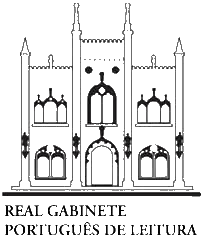O vento mudou: o Estado Novo e a inclusão dos festivais da canção televisivos em sua política de integração racial
DOI:
https://doi.org/10.37508/rcl.2020.n43a382Keywords:
Estado Novo, song festivals, racial integrationAbstract
The Estado Novo, authoritarian regime that prevailed in Portugal for 41 years, was headed by António de Oliveira Salazar, between 1933 and 1968, and Marcello Caetano, between 1969 and 1974. This regime, of fascist ideals, apparently differed from its counterparts in relation to the racial integration policy applied to their colonies in the African overseas, claiming to always aim at a multi and pluriracial unity, in which everyone would be Portuguese, whether or not they were in the metropolis. However, in opposition to the speeches foreshadowing a harmonious relationship between the peoples, the colonial wars occurred due to the denial of freedom to the colonies, the same reason why the image of the African black was used in media, in an attempt to demonstrate unity and integration between the territories and the races.
Downloads
References
ARQUIVO NACIONAL TORRE DO TOMBO/ARQUIVO MARCELLO CAETANO (ANTT/AMC). Cx. 2, Cruzeiro de férias às colónias, Discursos, n. 2, 1923/1995.
ARQUIVO NACIONAL TORRE DO TOMBO/ARQUIVO MARCELLO CAETANO (ANTT/AMC). Cx. 6, Exílio no Brasil, documentos políticos, n. 2 e n. 8, 1923/1995.
ARQUIVO NACIONAL TORRE DO TOMBO/ARQUIVO MARCELLO CAETANO (ANTT/AMC). Cx. 10, Viagem ministerial à África, objectivos da viagem, n. 10, 1923/1995.
ARQUIVO NACIONAL TORRE DO TOMBO/ARQUIVO MARCELLO CAETANO (ANTT/AMC). Cx. 12, Presidente do Conselho, ultramar, relatórios, n. 2, 1923/1995.
ARQUIVO NACIONAL TORRE DO TOMBO/ARQUIVO OLIVEIRA SALAZAR (ANTT/AOS). CO/PC-15, 1908/1974.
ARQUIVO NACIONAL TORRE DO TOMBO/ARQUIVO OLIVEIRA SALAZAR (ANTT/AOS). CO/PC-67, 1908/1974.
ARQUIVO NACIONAL TORRE DO TOMBO/ARQUIVO OLIVEIRA SALAZAR (ANTT/AOS). CO/PC-76B, 1908/1974.
ARQUIVO NACIONAL TORRE DO TOMBO/ARQUIVO OLIVEIRA SALAZAR (ANTT/AOS). CO/UL-38A, 1908/1974.
A VISITA triunfal de Marcello Caetano à Guiné, Angola e Moçambique, O Século Ilustrado, Lisboa, n. 1634, p. 29-40, 26 abr. 1969.
AZEVEDO, Cândido de. A censura de Salazar e Marcello Caetano: imprensa, teatro, cinema, televisão, radiodifusão, livro. Lisboa: Caminho, 1999.
BOXER, Charles. Relações raciais no Império Colonial Português – 1415-1825. Porto: Afrontamento, 1977.
CÁDIMA, Francisco Rui. Salazar, Caetano e a televisão portuguesa. Lisboa: Presença, 1996.
CALLIXTO, João Carlos; MANGORRINHA, Jorge. Portugal 12 pts: Festival da Canção. Lisboa: Âncora, 2018.
CASTELO, Cláudia. A mensagem luso-tropical do colonialismo português tardio: o papel da propaganda e da censura. In: MARTINS, Moisés de Lemos. Lusofonia e interculturalidade: promessa e travessia. Ribeirão, Portugal: Húmus, 2015. p. 451-470.
CONFERÊNCIA integrada à exposição “O Ano de 1969”, com participação de Simone de Oliveira, Nuno Nazareth Fernandes e mediação de Jorge Mangorrinha e Sofia Vieira Lopes. Lisboa: Biblioteca Nacional de Portugal, 28 maio 2019. Acervo pessoal do autor. 3 vídeos (33min10seg; 33min10seg; 22min02seg), son., color.
D’ESPINEY, Rui. A geração de 60 em Portugal, Sociologia: Problemas e Práticas, Lisboa, n. 8, p. 113-127, 1990.
FIGUEIREDO, Fábio Baqueiro. Entre raças, tribos e nações: os intelectuais do Centro de Estudos Angolanos, 1960-1980. 2012. 439 p. Tese (Doutorado em Estudos Étnicos e Africanos). Salvador, Universidade Federal da Bahia, 2012.
FUI AO PRÉMIO da canção “Giro-Flé-Flé-Flá”, Flama, Lisboa, p. 22-23, 3 mar. 1967. Disponível em: http://hemerotecadigital.cm-lisboa.pt/EFEMERIDES/FESTIVAL/Imagens/1967_Flama_03Mar1967_p022-023.pdf. Acesso em: 24 set. 2020.
GAMBACCINI, Paul et al. The complete Eurovision Song Contest Companion. London: Pavilion Books, 1998.
NEVES, Mauro. O fracasso português: por que Portugal nunca conseguiu vencer o Eurovisão?, Bulletin of the Faculty of Foreign Studies, Sophia University, Tóquio, n. 46, p. 91-128, 2011.
O’CONNOR, John Kennedy. The Eurovision Song Contest: the official history. London: Carlton Books, 2010.
TOSH, John. A busca da história: objetivos, métodos e as tendências no estudo da história moderna. Petrópolis: Vozes, 2011.
Downloads
Published
How to Cite
Issue
Section
License
Authors who publish in Convergência Lusíada agree with the following terms:
- Authors retain copyright and grant the journal right of first publication with the work simultaneously licensed under a Creative Commons Attribution-NonCommercial 4.0 International License (CC-BY-NC 4.0) that allows others to share the work with an acknowledgment of the work's authorship and initial publication in this journal.
- Authors may enter into separate, additional contractual arrangements for the non-exclusive distribution of the journal’s published version of the work (e.g., post it to an institutional repository or publish it in a book), with an acknowledgment of its initial publication in this journal.
- Authors are permitted and encouraged to post their work online (e.g., in institutional repositories or on their website) prior to and during the submission process, as it can lead to productive exchanges, as well as earlier and greater citation of published work.

Revista Convergência Lusíada is licensed under a Creative Commons - Atribuição-NãoComercial 4.0 Internacional.









